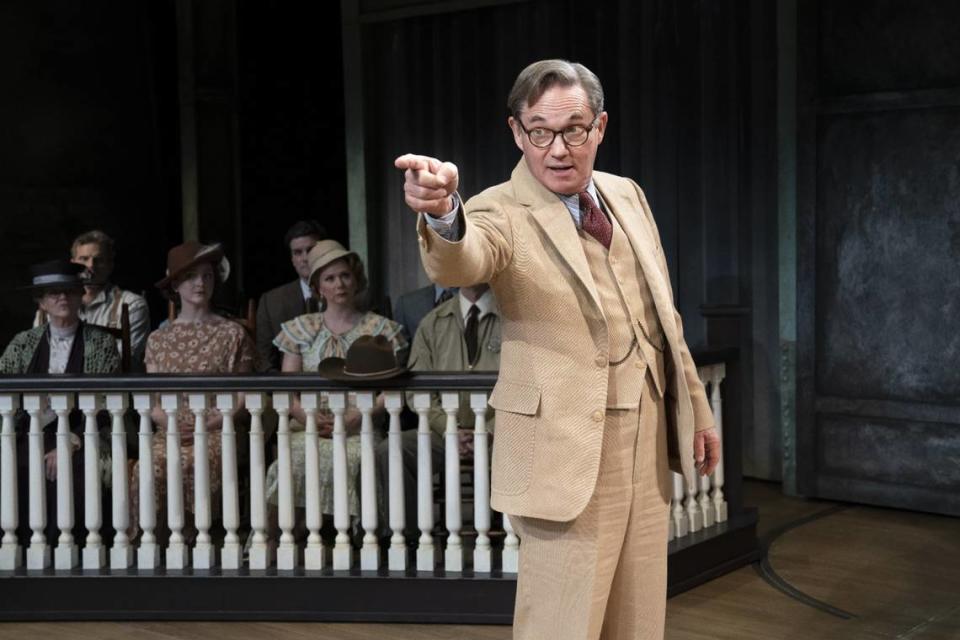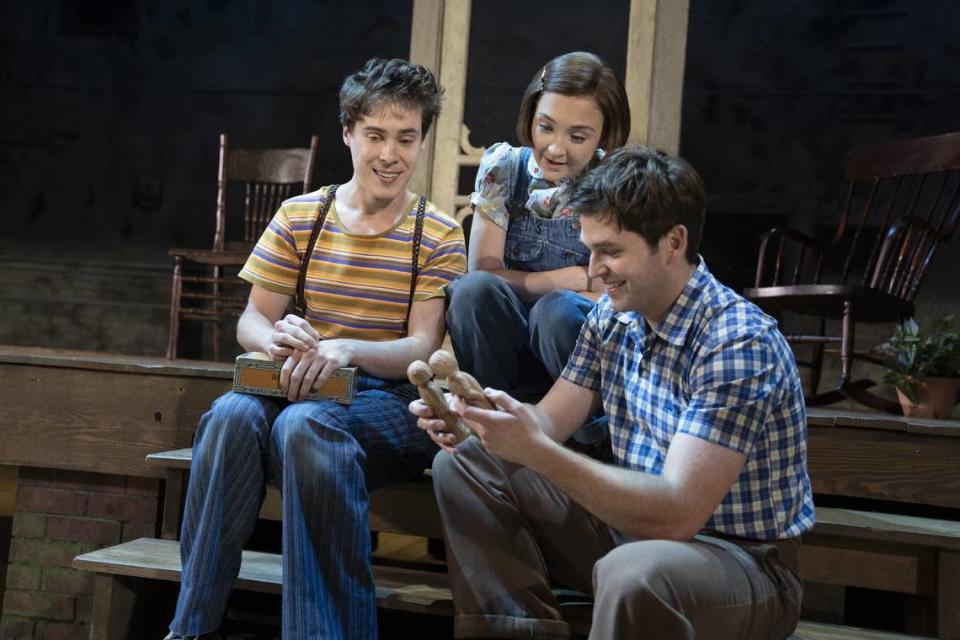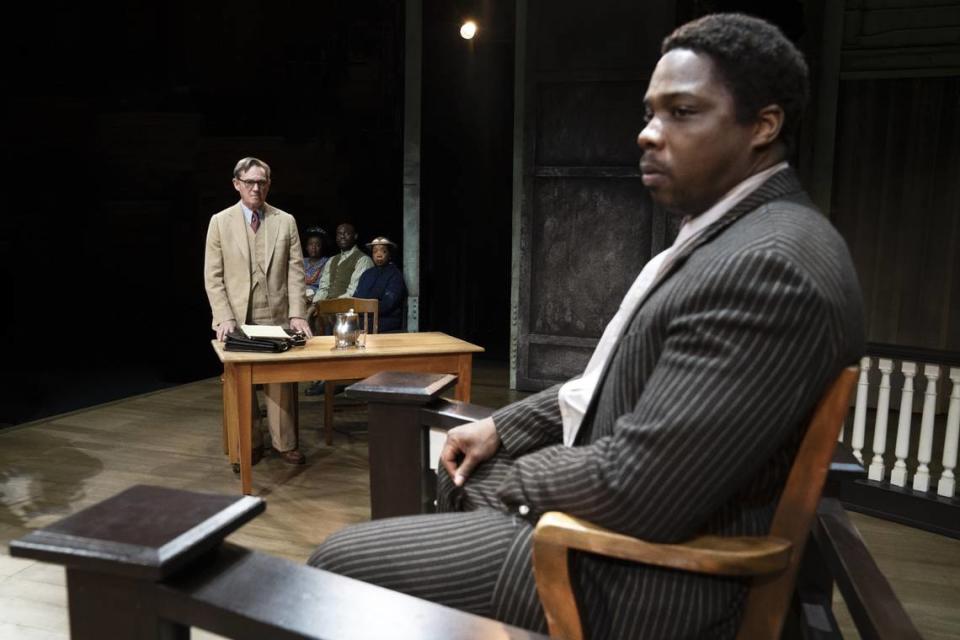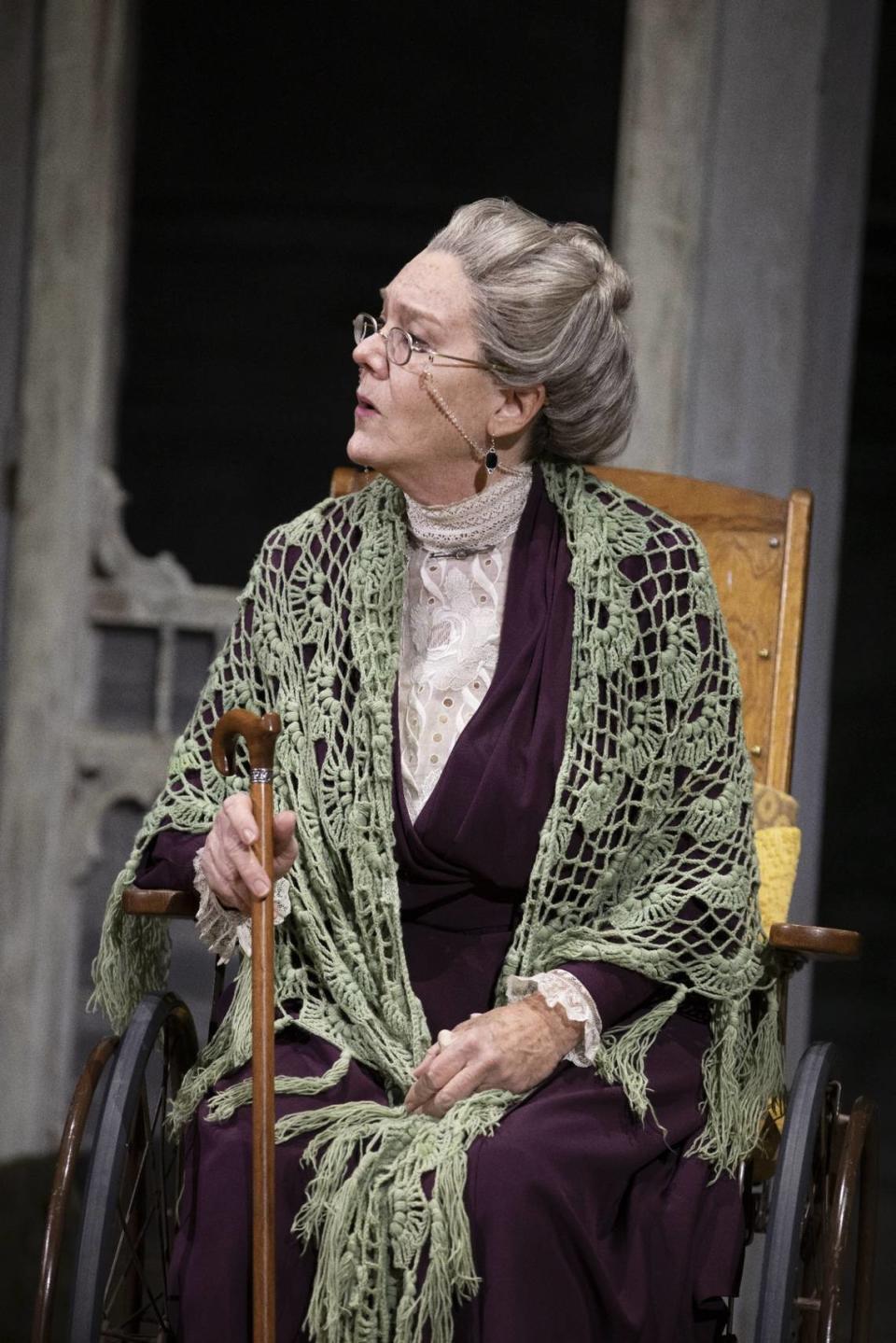Theater Review: ‘To Kill a Mockingbird’ shifts focus for a modern audience. Does it work?
- Oops!Something went wrong.Please try again later.
- Oops!Something went wrong.Please try again later.
I recently re-watched the movie “To Kill a Mockingbird” for the first time in years — ahead of seeing the stage version return to Belk Theater Tuesday night — and was struck by several thoughts.
That beloved black-and-white 1962 classic (based on the Harper Lee novel that we all read in school) firmly focused on the righteous Atticus Finch and his fight against racial injustice in small-town, Depression-era Alabama. But I also noticed the camera angles, especially when Atticus was in court defending a Black man wrongly accused of raping a white woman.
The camera often was set slightly below eye level, meaning it — and by extension, the audience — looked up at Atticus, played in a career-defining role by Gregory Peck. That helped elevate the character even higher, but gave him little room for change from such a lofty angle.
Veteran theater, movie and TV writer Aaron Sorkin adapted the book for the stage. He readjusted that perspective to eye level, looking at Atticus straight on to allow a modern audience a different take of him. One where we can see his innate decency, as embodied by acting pro Richard Thomas, affectionately remembered by many as the Walton’s John-Boy.

But Thomas also brings to life some subtle flaws, stubbornness and more than a flash or two of anger in Atticus.
In the play, Atticus is a more complex character than we’re used to, someone capable of going against his principles if it means protecting his family and the recluse who saved his kids. (I won’t give away that particular twist for those folks who are still unfamiliar with the source material. But that apparently included someone sitting behind me, who not-so-quietly said his name in a surprised manner.)
How (and why) Aaron Sorkin flipped the script for stage version of ‘To Kill a Mockingbird’
Sorkin brings the extended courtroom scenes to crackling life much earlier than the book or movie, endowing them with added weight.
Another departure from the book and movie: There are more laughs than expected. For instance, young Dill (a scene-stealing Steven Lee Johnson) espouses his worldview this way: “I’m an optimist. I used to think that meant eye doctor.”

Once the audience got over their initial surprise of the jokes, they were primed for more laughs, even during a courtroom moment that did not warrant it.
Another change is that the three kids — Johnson as Dill, along with Maeve Moynihan and Justin Mark as Scout and Jem Finch — are played by adults playing kids. They all share in narrator duties now, instead of just Scout. Sort of a Nickelodeon Greek chorus.
Yaegel T. Welch ably plays the defendant Tom Robinson as fighting for his life with quiet dignity until he can remain quiet no longer. You can’t take your eyes off him when he testifies.

Sorkin also expanded the role of the Finch’s maid, Calpurnia, who is given strong spirit and a beating heart by Jacqueline Williams. Through her, we get to see Atticus called out on what could be seen through a modern lens as a bit of a white savior complex.
Carryovers from the movie and book include the two-dimensional villainy of Bob Ewell — father of the young woman accusing Tom Robinson — with Joey Collins making sure we feel every racist bone in Ewell’s body. But man, hearing multiple usages of the N-word on stage made me cringe, even if if fits the character.
A welcome reprisal from the film is none other than Mary Badham, who was all of 10 years old when she starred as Scout opposite Peck and received an Oscar nomination for Best Supporting Actress. Here, she makes the most of the minor role of a racist old neighbor, Mrs. Henry Dubose.
In the end, Sorkin and director Bartlett Sher succeed in refashioning “Mockingbird” for a new generation, but with an old lesson: The quest for social justice remains just as vital today as it ever was.

‘To Kill a Mockingbird’
What: The stage adaptation of the classic book by Harper Lee.
When: Now through Aug. 6.
Where: Belk Theater, 130 N. Tryon St., Charlotte.
Tickets: Go to blumenthalarts.org/events.
More arts coverage
Want to see more stories like this? Sign up here for our free “Inside Charlotte Arts” newsletter: charlotteobserver.com/newsletters. And you can join our Facebook group, “Inside Charlotte Arts,” by going here: facebook.com/groups/insidecharlottearts.

